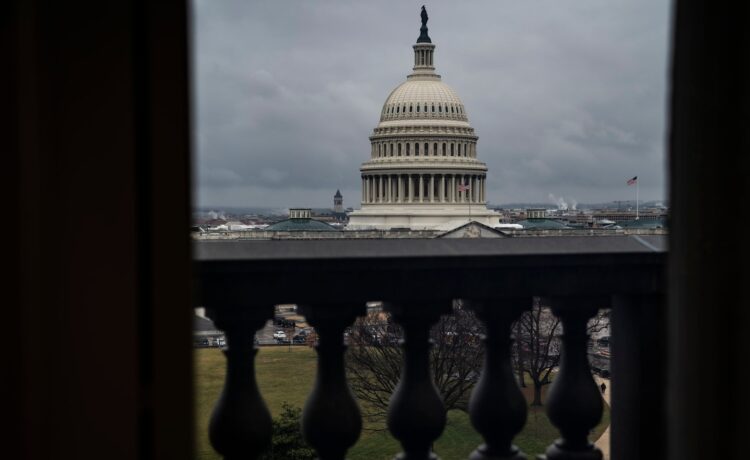Members of Congress and the president and vice president would also have to divest from certain investments by 2027.
Lawmakers would face a fine worth their monthly salary or 10 percent of the value of each improper investment if they violated the new rules.
Lawmakers are already prohibited from using information gained from confidential briefings to make investments. And members must publicly disclose the stocks they buy and sell. But the penalty for such a violation is $200, hardly a fraction of the $174,000 salary that most members of Congress receive.
And lawmakers have been so active on the stock market that investment products have launched that allow ordinary investors to mimic the trades made by members of Congress.
Previous bipartisan pushes to ban or restrict congressional stock trading have failed. Then-House Speaker Nancy Pelosi (D-Calif.) in 2022 declined to bring legislation up for a vote in the House, saying the measure lacked the votes to pass. But she also opposed the measure herself, and her husband, Paul Pelosi, is a very successful investor.
“We’re a free-market economy,” Pelosi said in 2022. “They [members of Congress] should be able to participate in that.”
GET CAUGHT UP
Stories to keep you informed
The former speaker has long maintained that she does not personally own any stock and has no knowledge of or involvement with her husband’s investments.
Lawmakers who have been scrutinized over their stock trades in recent years have not faced many consequences.
Rep. Pat Fallon (R-Tex.), who failed to disclose 122 transactions valued between $9 million and $21 million in 2021 in a timely manner, paid $600 in late-filing fees and corrected the record, though he refused to cooperate with a review conducted by the Office of Congressional Ethics.
The Senate Select Committee on Ethics has not issued a disciplinary sanction against a senator in over 15 years, even after a stock-trading scandal roiled the upper chamber. Then-Sens. Richard Burr (R-N.C.), Dianne Feinstein (D-Calif.), James M. Inhofe (R-Okla.) and Kelly Loeffler (R-Ga.) came under scrutiny at the start of 2020 after they dumped vast stock holdings ahead of the coronavirus-induced market plunge. Neither the Senate Ethics Committee nor the Justice Department, whose investigators launched probes into the stock sales, pursued charges.
The “clear exoneration by the Department of Justice affirms what Senator Loeffler has said all along — she did nothing wrong,” a spokesman for Loeffler said at the conclusion of the investigation, adding that “she and her husband acted entirely appropriately and observed both the letter and the spirit of the law.”


